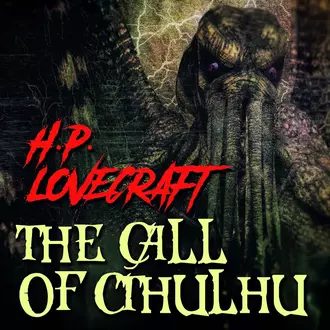Другие озвучки:
Версия для чтения:
"The Call of Cthulhu" by Howard Phillips H. P. Lovecraft is one of the classic horror works, so called “Lovecraft horrors”. American author of horror, fantasy, and science fiction. Lovecraft's major inspiration and invention was cosmic horror; the idea that life is incomprehensible to human minds and that the universe is fundamentally alien. Those who genuinely reason, like his protagonists, gamble with sanity. Lovecraft has developed a cult following for his Cthulhu Mythos, a series of loosely interconnected fiction featuring a pantheon of human-nullifying entities, as well as the Necronomicon, a fictional grimoire of magical rites and forbidden lore. His works were deeply pessimistic and cynical, challenging the values of the Enlightenment, Romanticism, and Christian humanism. Lovecraft's protagonists usually achieve the mirror-opposite of traditional gnosis and mysticism by momentarily glimpsing the horror of ultimate reality. Some people adore it, some people find it way too long (reading it is definitely work), but everyone agrees it’s a monumental story that ties together the universe where “The Call of Cthulhu,” The Shadow Over Innsmouth, “The Dunwich Horror,” and lots of other stories exist. A group of explorers go to Antarctica and discover evidence of a previous civilization. I don’t want to spoil the surprises, but I can at least tell you the big discovery the explorers make: There are things that even monsters fear. Famous works of the author Howard Phillips Lovecraft: At the Mountains of Madness, The Dreams in the Witch House, The Horror at Red Hook, The Shadow Out of Time, The Shadows over Innsmouth, The Alchemist, Herbert West: Reanimator, Ex Oblivione, Azathoth, The Call of Cthulhu, The Cats of Ulthar, The Outsider, The Picture in the House, The Shunned House, The Terrible Old Man, The Tomb, What the Moon Brings.
